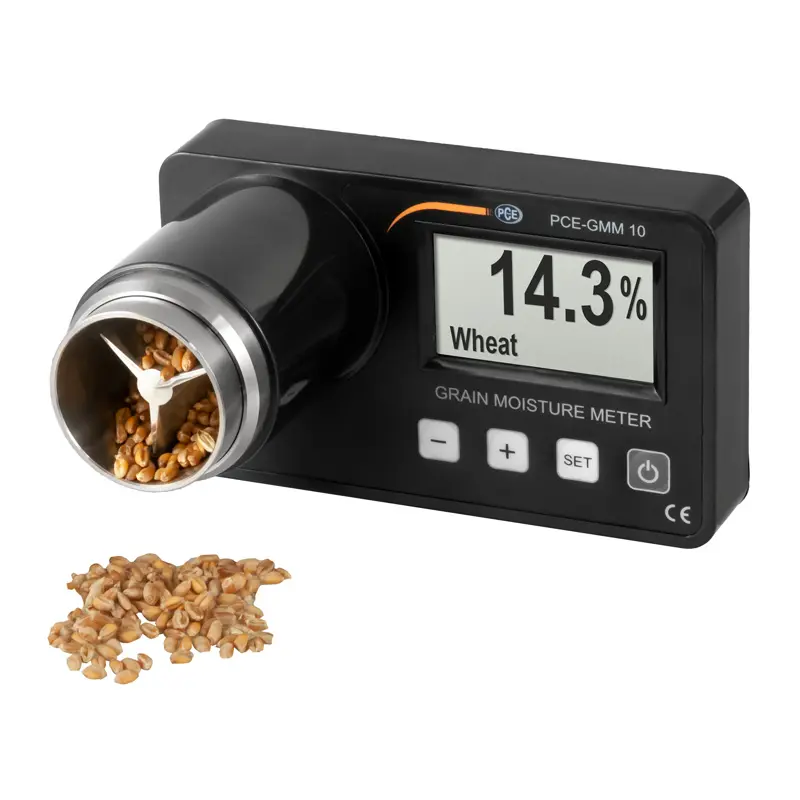The Ultimate Overview to Picking the Right Moisture Meter for Your Demands
The Ultimate Overview to Picking the Right Moisture Meter for Your Demands
Blog Article
The Ultimate Overview to Wetness Meters: A Comprehensive Overview and Just How They Can Conserve You Money
Moisture meters offer as essential devices in identifying and keeping track of moisture web content in materials, helping in stopping pricey problems and guaranteeing the quality of products. Comprehending the subtleties of various types of dampness meters, their applications, and the prospective cost-saving benefits they use can be a game-changer for experts and companies alike.
Sorts Of Wetness Meters
One common type is the pin-type moisture meter, which measures the electrical resistance between two pins inserted into a product. Pinless dampness meters, on the various other hand, usage electro-magnetic sensing unit plates to scan a larger area without triggering damages to the product's surface.

Infrared wetness meters gauge the thermal residential properties of a product to identify its dampness content non-invasively, making them beneficial for applications where pin or pinless meters might not be suitable. Comprehending the various types of wetness meters readily available can help markets pick the most appropriate tool for their certain dampness measurement requirements.

Benefits of Using Dampness Meters
Dampness meters provide very useful advantages in precisely analyzing and checking dampness degrees in diverse materials and atmospheres (Moisture Meter). Among the key advantages of using moisture meters is the prevention of prospective damages brought on by excess dampness. By spotting and attending to high wetness degrees beforehand, dampness meters help to stop mold growth, rot, and structural damage in buildings, saving both time and money on repair services. In addition, dampness meters help in ensuring the quality of materials during building and construction or manufacturing processes. By properly determining moisture web content, these devices aid maintain the stability of wood, drywall, concrete, and various other materials, reducing the danger of failures or issues.
Additionally, making use of dampness meters can cause enhanced power performance. By determining areas with high dampness levels, such as leakages or bad insulation, adjustments can be made to boost power conservation and reduce energy expenses. In farming settings, moisture meters play a critical function in optimizing plant yields by making it possible for farmers to check soil dampness levels and make informed watering decisions. On the whole, the benefits of making use of wetness meters cover throughout different industries, supplying affordable remedies and promoting far better quality assurance practices.
How to Select the Right Dampness Meter
Selecting the proper dampness meter involves thinking about key factors such as material compatibility, dimension range, and calibration precision. When picking a dampness meter, it's necessary to guarantee that the meter appropriates for the specific material you will certainly be screening. Various products have varying electrical buildings that can affect moisture readings, so choosing a meter created for your product is critical for exact outcomes. Additionally, consider the measurement range of the wetness meter. Make sure that the meter can find dampness degrees within the array needed for your applications. Calibration precision is one more important variable to remember. Choose a dampness meter with reliable calibration to ensure consistent and precise analyses. Some meters may require periodic calibration adjustments, view so recognizing the calibration procedure is essential. By carefully evaluating these elements, you can choose a moisture meter that fulfills your needs and provides exact dampness dimensions for your jobs.
Appropriate Techniques for Dampness Meter Usage

Cost Savings Through Moisture Meter Applications
Exactly how can the tactical application of wetness meters cause considerable expense savings across various industries? Moisture meters play a crucial role in cost savings by avoiding potential damage and ensuring quality assurance in various fields. In the farming market, wetness meters aid in determining the optimal time for collecting crops, avoiding excess or over-drying wetness that can impact the end product's high quality. This precise monitoring assists farmers avoid unneeded losses and maximize their yield.
Similarly, in construction, moisture meters assist protect against expensive damages by detecting wetness levels in building products, such as timber or concrete, which can result in architectural issues if not resolved promptly. By determining trouble areas early, contractors can take restorative actions to avoid substantial fixings or replacements, eventually conserving money and time.
Moreover, in the food handling industry, moisture meters are vital for monitoring product high quality and making sure conformity with safety guidelines. By accurately measuring wetness web content in food products, makers can protect against putridity, keep freshness, and minimize waste, causing substantial price savings. Generally, the strategic application of wetness meters is a Find Out More valuable financial investment that can lead to significant cost decreases and boosted efficiency across numerous industries.
Verdict
In conclusion, moisture meters are beneficial tools for determining and detecting dampness levels in different materials. By using the right wetness meter and following appropriate techniques, individuals can effectively stop costly damages created by excess moisture.
Wetness meters serve as crucial tools in identifying and keeping an eye on moisture content in materials, assisting in avoiding pricey damages and making sure the top quality of products. Infrared wetness meters gauge the thermal residential properties of a material to determine its wetness web content non-invasively, making them useful for applications where pin or pinless meters may not be appropriate.Dampness meters supply indispensable benefits in properly keeping an eye on and analyzing moisture degrees in varied products and environments. In agricultural setups, dampness meters play an essential duty in optimizing crop yields by making it possible for farmers to keep track of dirt dampness levels and make notified watering decisions.In final thought, dampness meters are valuable tools for measuring and spotting dampness levels in different materials.
Report this page